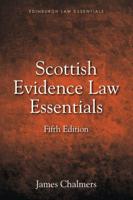Publisher's Synopsis
Providing a complete view of U.S. legal principles, this book addresses distinct issues as well as the overlays and connections between them. It presents as a cohesive whole the interrelationships between constitutional principles, statutory criminal laws, procedural law, and common-law evidentiary doctrines. This fully revised and updated new edition also includes discussion questions and hypothetical scenarios to check learning.
Constitutional principles are the foundation upon which substantive criminal law, criminal procedure law, and evidence laws rely. The concepts of due process, legality, specificity, notice, equality, and fairness are intrinsic to these three disciplines, and a firm understanding of their implications is necessary for a thorough comprehension of the topic. This book examines the tensions produced by balancing the ideals of individual liberty embodied in the Constitution against society's need to enforce criminal laws as a means of achieving social control, order, and safety. Relying on his first-hand experience as a law enforcement official and criminal defense attorney, the author presents issues that highlight the difficulties in applying constitutional principles to specific criminal justice situations. Each chapter of the text contains a realistic problem in the form of a fact pattern that focuses on one or more classic criminal justice issues to which readers can relate. These problems are presented from the points of view of citizens caught up in a police investigation and of police officers attempting to enforce the law within the framework of constitutional protections.
This book is ideal for courses in criminal law and procedure that seek to focus on the philosophical underpinnings of the system.











